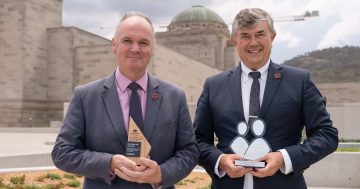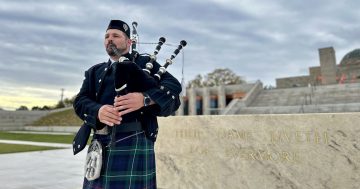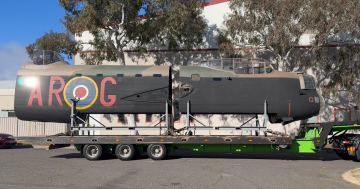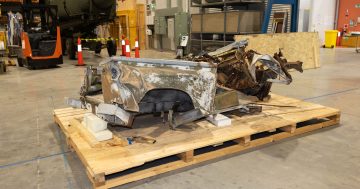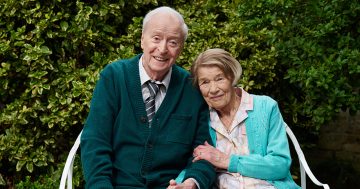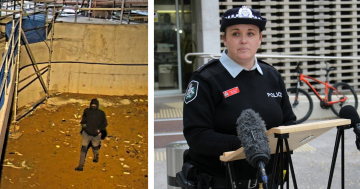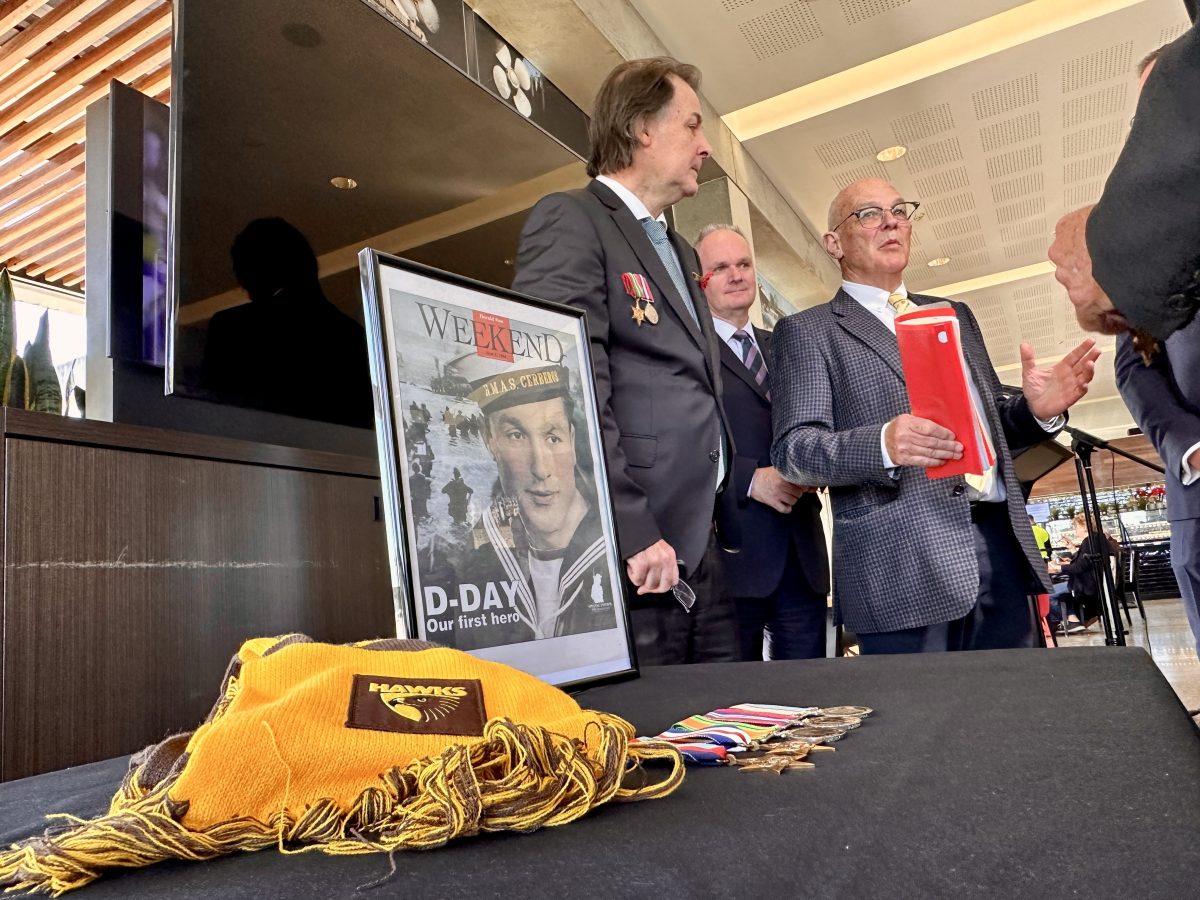
Richard Pirrie’s nephews Michael and Richard Pirrie, together with Australian War Memorial director Matt Anderson. Photo: James Coleman.
As the mass of Allied ships and planes bore down on the coast of Normandy, France, in the early hours of the morning of 6 June 1944, Australian sub-lieutenant Richard Pirrie had a crucial role to play.
The Germans had been led astray for months prior to this – led to believe the invasion would be coming from elsewhere, on a different date. And now, right now, the tricks had to continue.
Richard, turning 24 that very day, was in charge of a small spotter boat, Landing Craft Support (M) 47, and under orders to take it as close as possible to the shore so his team could target the German strongholds and help clear the way for the 24,000 troops behind him.
It worked. The Germans, distracted by the small boat, took their eye off the ball. Richard and his crew were killed by the shellfire and a floating sea mine, but the enemy was left totally unprepared for what followed.
D-Day, as it’s become known, might be thought of as a British and American moment of pride, but Richard was among more than 3000 Australian soldiers involved.
Thursday, 6 June, marks the 80th anniversary of the “greatest event in the history of the world”.
At least, that’s how Richard described D-Day in a letter to his wife and children he never got the chance to finish.
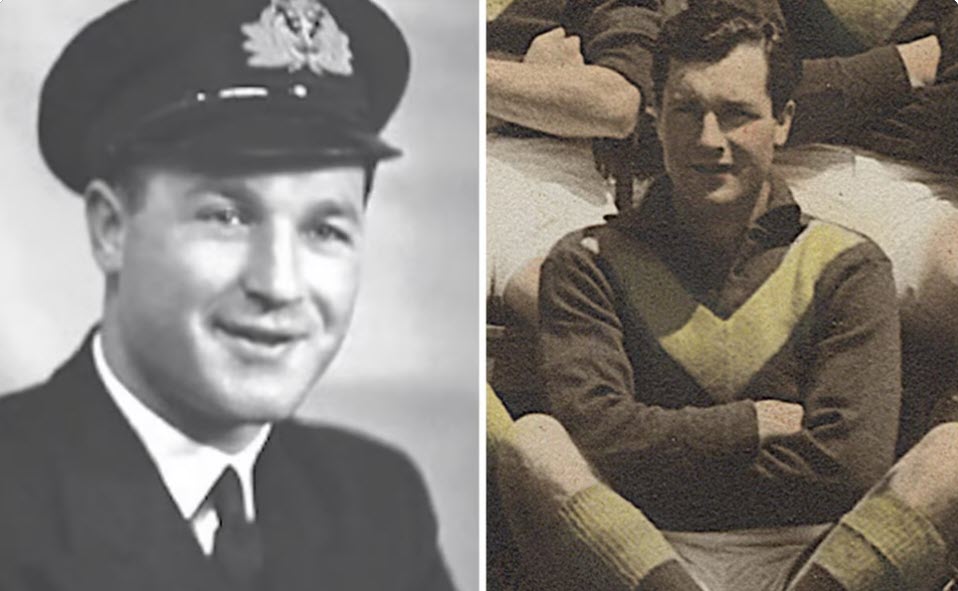
Australian sub-lieutenant Richard Perrie. Photo: Perrie family.
“Well, my dears, the pressure is on now,” he wrote.
“By the time you receive this, you will surely have heard of some bare details … This is my month, June … I’ll leave this now and hope and trust in God that I will conclude in a few days.”
Richard was among 14 members of the Australian Defence Force, two from the Navy and 12 from the Royal Australian Air Force, to pay the ultimate price that day. Their bravery didn’t go unnoticed.
Fellow officer Lieutenant Eric Langford later acknowledged Richard’s efforts meant that “on our portion of the beach not one of our troops failed to get safely ashore”.
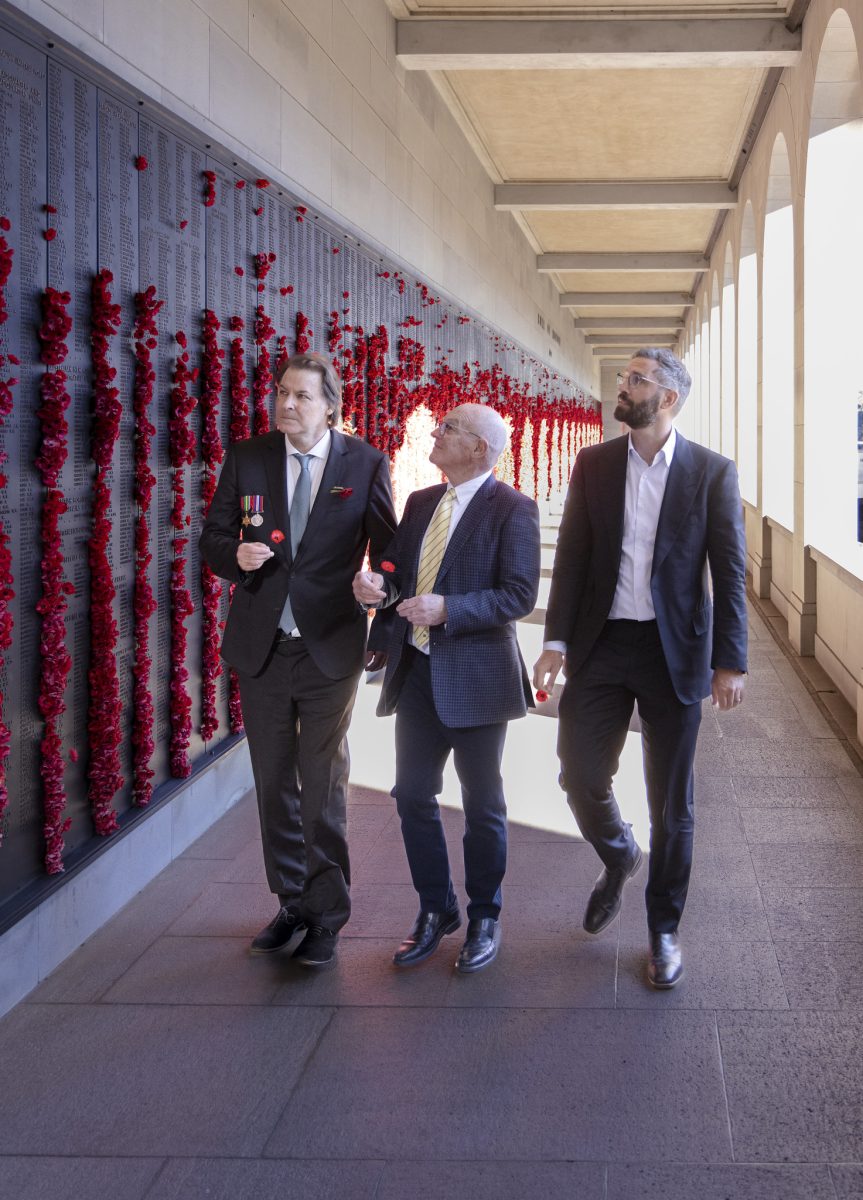
Richard Pirrie’s surviving family visited the Australian War Memorial this week. Photo: Australian War Memorial.
And all these years later, when asked by the United Kingdom Defence Ministry to select an Australian to be remembered at the Normandy Memorial Wall in the UK, Australian War Memorial Director Matt Anderson named Richard Pirrie in a heartbeat.
“I just want to assure the family how much richer we are as a nation, as a society, because we’ll be able to tell his story and possibly set ourselves the impossible standard of trying to live up to the standard that he has set for us all,” Mr Anderson said.
Members of Richard’s family visited Canberra on Tuesday, 28 May, to donate his bravery medals for safekeeping at the Memorial, accompanied by Mr Anderson as well as Minister for Veterans’ Affairs and Defence Personnel Matt Keogh.
Richard’s nephews Richard and Michael Pirrie had come across the medals among their mother’s possessions, wrapped and placed in an old jewellery box with the label “Richard Pirrie’s war service medals and ribbons, please handle with extreme care”.
“Richard was killed while defending the foundations of Australia’s way of life on another side of the world,” his nephew Richard said.
“One can’t imagine a more dangerous mission, a more selfless mission. He knew what he faced.”
Holding back tears, Michael added that his uncle “has finally found a physical and spiritual resting home here at the Australian War Memorial where his family and others from around Australia and the world can come to visit him”.
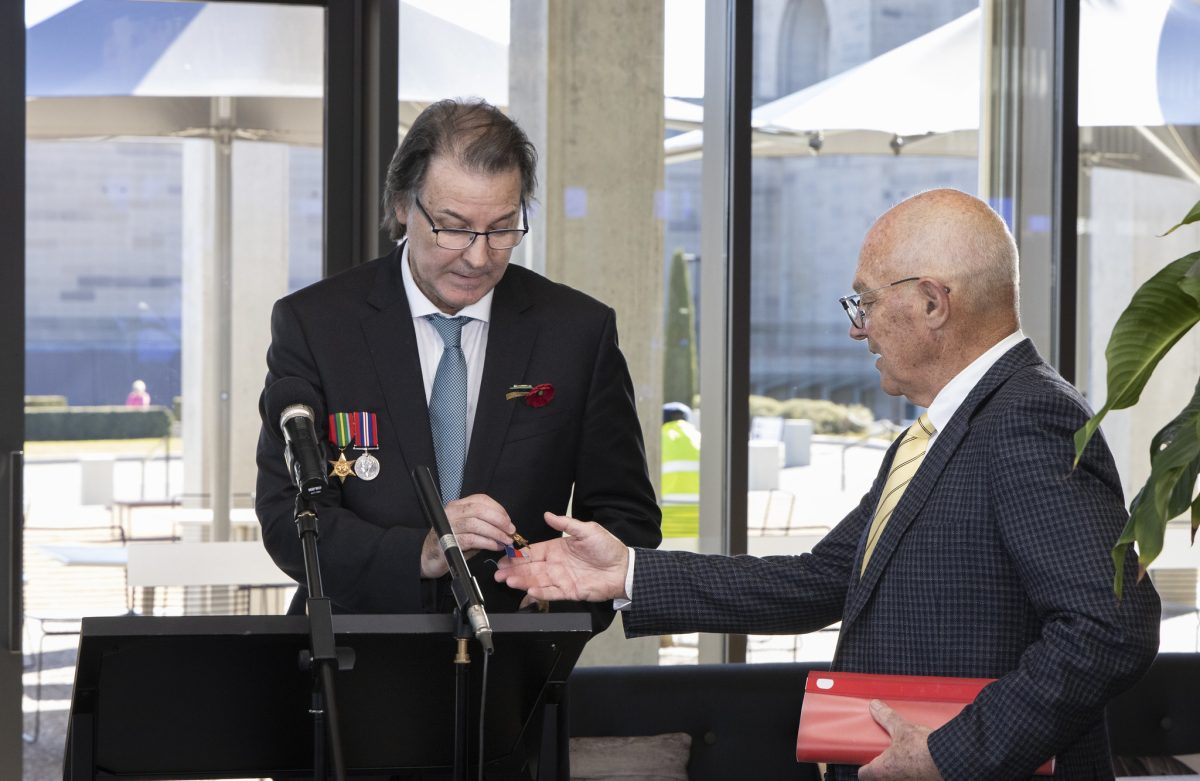
Michael and Richard Perrie are cousins. Photo: Australian War Memorial.
Prior to joining the war effort, their uncle Richard was an avid player for the Hawthorne Football Club, based in Mulgrave, Victoria, so accompanying the table of medals in Poppy’s Café for the media conference was a Hawkes scarf.
The cousins joked that their uncle’s “spatial awareness” on his beloved sports field helped him on the battlefield too.
“Richard would be quietly thrilled that 80 years after he and his D-Day colleagues began their epic struggle to free Europe from the Nazi reign, this year is the same year Paris will host the Olympic Games – the world’s biggest event dedicated to sport in the service of humanity,” Michael said.
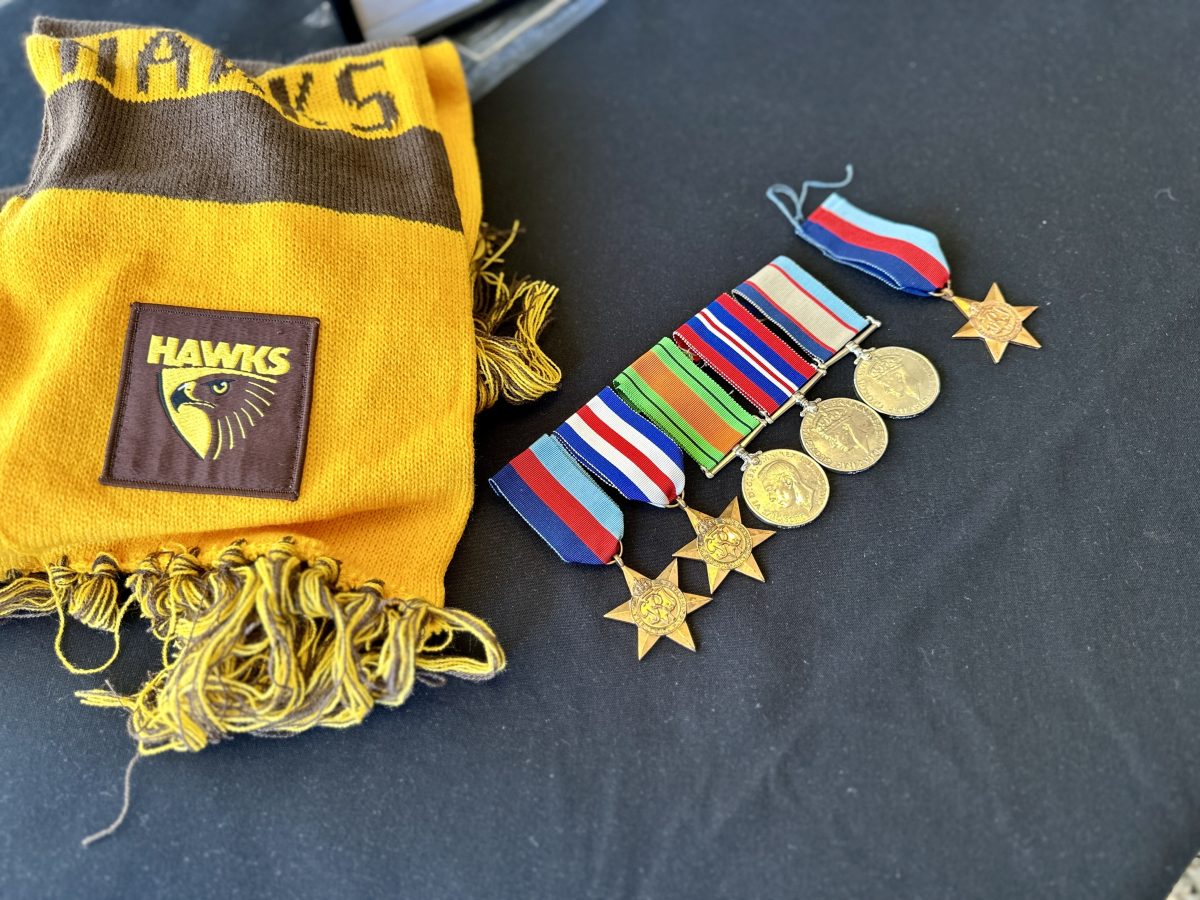
The medals will be held in the War Memorial’s collection. Photo: James Coleman.
Many of the Pirrie family members are traveling to Portsmouth, UK, for the actual anniversary of the invasion, and the unveiling of Richard’s name on the Normandy Memorial Wall. His will be among 13 others representing the 12 Allied countries who took part in D-Day.
Minister for Veterans’ Affairs and Defence Personnel Matt Keogh named Richard among the Australian troops “known to back their mates no matter what”.
“There are countless tales of Australians doing extraordinary things to preserve the values that we hold dear,” he said.
Original Article published by James Coleman on Riotact.



